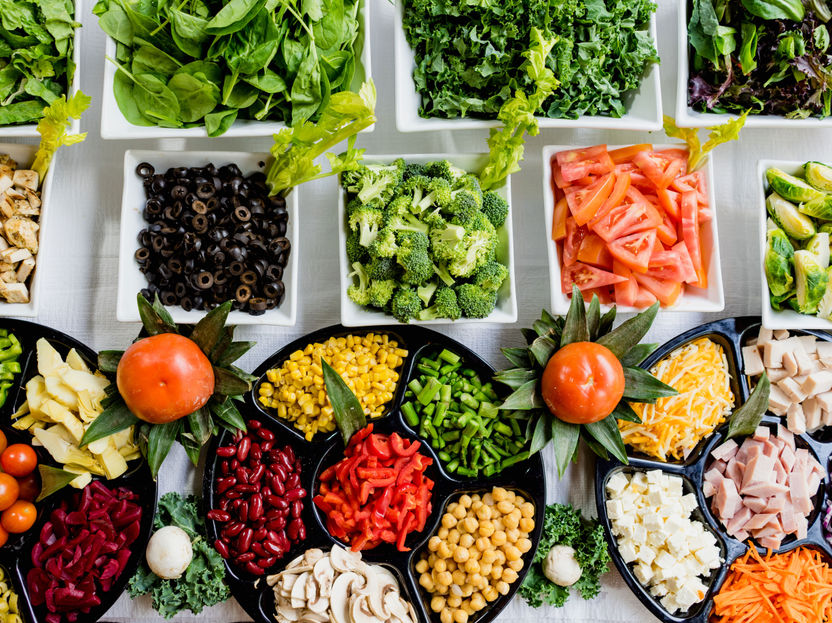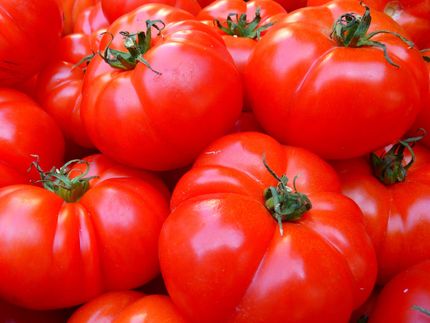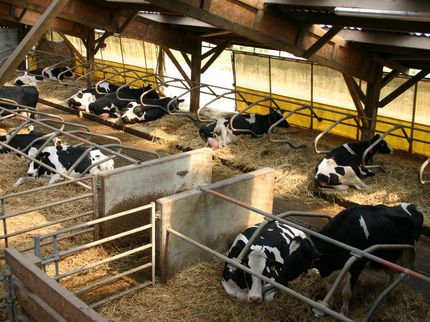A comprehensive view of the world food system
Zukunftsblog ETH zürich
agriculture practices that preserve resources? Enough food to make sure that everyone can enjoy a healthy and balanced diet? We still are a long way from that, finds Robert Finger – and outlines the most important fields of action to make the food system more sustainable.

unsplash
Today, the global system that supplies us with food is facing major challenges. In Switzerland, Europe and throughout the world, demand is increasing while resources are dwindling, either due to climate change or because soil fertility is decreasing. At the same time, we need to significantly reduce the negative impacts that our current agricultural and food system has on biodiversity, the environment and our health. So, how can we go about solving this problem?
At ETH Zurich’s World Food System Center, we are working together with researchers from more than 50 professorships and different disciplines to find practical answers. There is no one-size-fits-all solution here, but over the past ten years we have come up with several levers and approaches to make our agriculture, food and diets more sustainable step by step:
Look at the system as a whole
Our diets have consequences. The food that we eat and the way that it is produced, processed, and transported has a direct impact on the environment, affects our health and makes it possible for other people to earn an income. We must look at the food system from a systematic perspective and include not just farmers, but also the food industry, retailers and us as consumers.
Furthermore, our solutions must be comprehensive. They must work at a local level but also go beyond this and take global relationships and connections into account. For example, it is not really helpful to reduce production in our own country but then replace this with products imported from other parts of the world that have much larger ecological footprints.
Avoid waste
One third of our food is lost in the form of food loss and waste. By reducing this proportion, we can shrink our footprint without having to limit ourselves too much. To do this, steps must be implemented at each stage of the process: from the field to retailers and each individual household.
Increase efficiency
There is huge potential for greater efficiency on farming fields. With new digital technologies such as precision farming tools, you can apply inputs such as fertiliser and pesticides in a targeted way, exactly where you need them. This helps farmers to protect the environment and reduce costs without affecting food production.1
Replace and improve
Another approach is substitution. By consuming more plant proteins instead of milk and meat, we can reduce the environmental impact of our diets. The same goes for using biological instead of chemical methods to tackle pests2, replacing crops that are susceptible to disease with more resistant crops3 or feeding livestock in a more sustainable way.
Fight the cause, not symptoms
While efficiency and substitution help to reduce the negative effects, they do not resolve the root causes of the problem. We therefore need to completely rethink agricultural and food systems from the ground up. In arable farming, for example, we must find new ways to reduce the use of critical inputs such as pesticides or make them superfluous.4 This requires more diverse cultivation systems, breeding resistant crop varieties and a consistent implementation of agroecological approaches.
Close cycles
The most effective measures go beyond agricultural production and include the up- and downstream stages. This means that any by-products or “waste” can be better utilised and reintroduced into the production cycle. Insects that utilise the organic remains from food production can replace imported soy as feed for chickens and help to protect the rainforests.5
Promote acceptance and sustainable behaviour
Alongside developing new methods and technologies, the behaviour of all stakeholders involved in the food system continues to be the focus of our work. We will only be able to see the full effects of innovations once producers apply new practices and consumers accept them. Suitable political measures can also decisively contribute to this by providing incentives, building awareness and encouraging people to adopt new behaviours.
"Building a sustainable food system is a challenge, but achievable if we acknowledge it as a major societal task." Robert Finger
One of the most effective measures lies in the hands of all of us when we choose what we eat: Eating fewer animal products and more fruits and vegetables is better for the climate and our environment, as well as our health and wallets.6
Cooperate with partners
It is these kinds of approaches that we pursue at the World Food System Center, through research and teaching and in collaboration with industry and politics: systematic, cross-disciplinary and across national borders. But no organisation or country can reverse long-established practices and cultural traditions on their own. This can only happen when key players from the industries involved, the world of politics and consumers all pull together. Building a sustainable food system is a challenge, but achievable if we acknowledge it as a major societal task. We are committed to achieving this.
Robert Finger wrote this blog post in collaboration with Martijn Sonnevelt, Executive Director of ETH Zurich’s World Food System Center.
1 The external pageInnofarmcall_made project: digital technologies for sustainable agriculture
2 The BeneComb project: biological control of soilborne insect pests using combinations of pseudomonads, nematodes and fungi.
3 The ResPEAct project: improving disease resistance of pea varieties through selection at the plant-soil interface.
4 Agricultural policy blog: external pageparticipation in pesticide-free wheat production in Switzerlandcall_made
5 The HenandFly project: soldier fly larvae reared on various substrates as a novel protein source.
6 The Sustainable Gastronomy at ETH Zurich project





























































